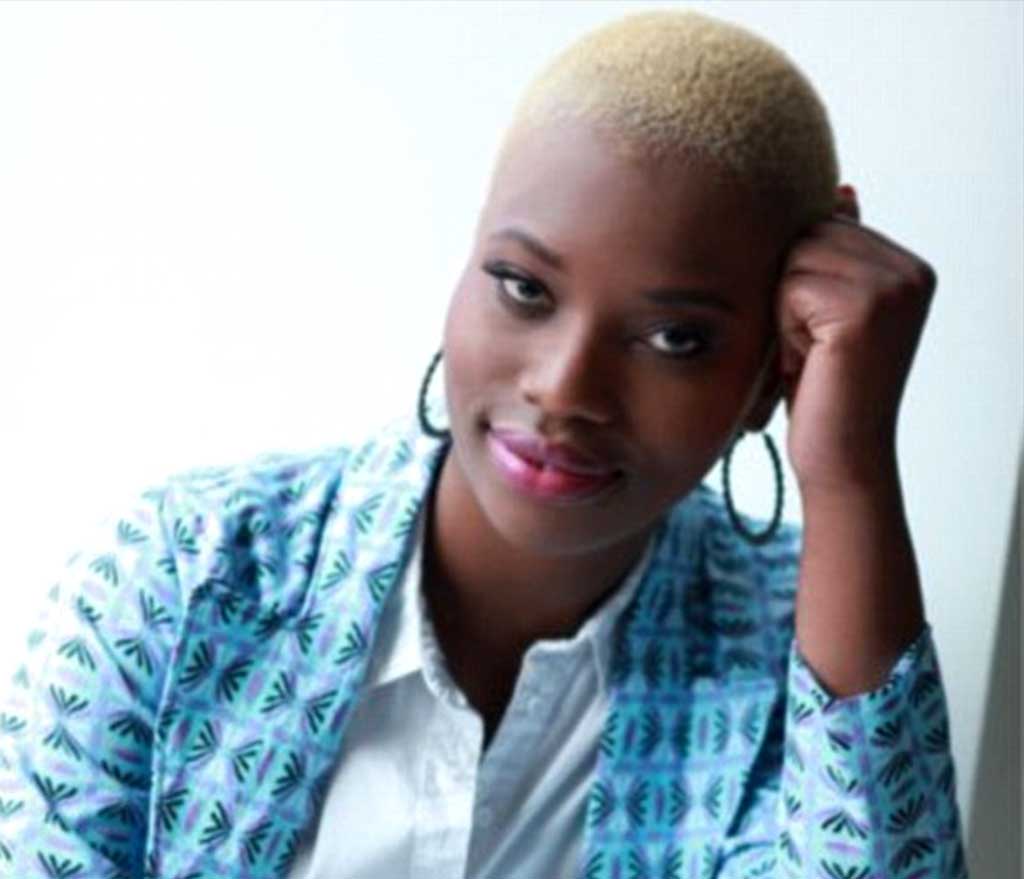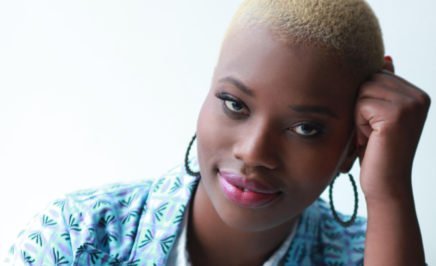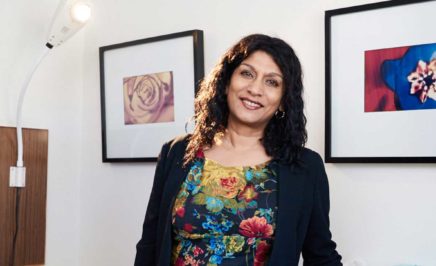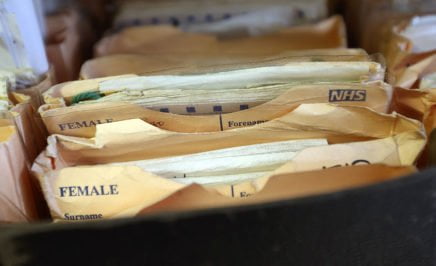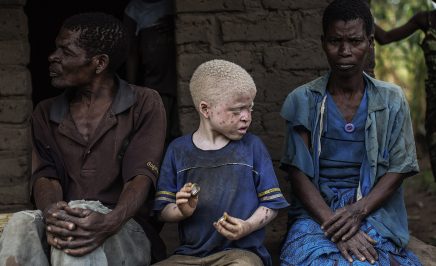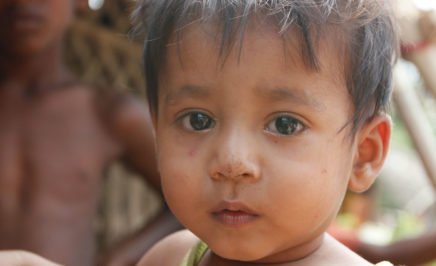Female genital mutilation (FGM) survivor Khadija Gbla chats to Holly Enriquez about her journey from Sierra Leone refugee to Australian Anti-FGM campaigner.
How did your Anti-FGM campaigning begin?
I’m a survivor of female genital mutilation (FGM). I was mutilated when I was between the ages of 9 and 10 in Gambia. My mum had an older lady perform it on me and it was so traumatic that I had post-traumatic amnesia. I came to Australia [as a refugee] in 2001 and one day I came across a sheet of paper that had the different types of female genital mutilation on it and that triggered my memory. I knew then that this terrible act of child abuse had happened to me and it was happening to other little girls across the world.
I wanted to channel the anger, the pain and all the raw emotions into something good, otherwise it was going to consume me. And so I started speaking out and I started advocating. I started doing education with girls here in Australia who come from communities that practise FGM. I started saying to little girls: “We need to stand up, we need to speak up, we need to be aware that FGM is something that can happen to you, even if you’re now living in Australia”.
“I wanted to channel the anger, the pain and all the raw emotions into something good, otherwise it was going to consume me”
In 2013 I met Paula Ferarri and Sybil Williams and we founded No FGM Australia. We are a national organisation that educates and works with child abuse survivors, such as myself, who live with the health consequences of FGM which are life-long. I just want to protect girls, whether they are black, white, blue, green – it doesn’t matter where a child has come from or who their parents are, we should give them protection.
Why don’t we hear more about FGM happening here in Australia?
According to our statistics, we have 83,000 women and girls living in Australia who have already been affected by FGM. The secrecy and the silence is the way FGM is perpetrated. These communities come to Australia as refugees or migrants and they try to settle. They face discrimination, they are trying to get jobs, they are trying to support their families back home and they become quite insular. And so, they are able to perpetrate FGM. When you have that bigger battle against racism, your cultural rites become all you have. It becomes your identity, it becomes even more important to you to hold on to them.
“When you have that bigger battle against racism, your cultural rites become all you have. It becomes your identity, it becomes even more important to you to hold on to them”
Of course there are beautiful, wonderful parts of migrant cultures which Australia has benefited from – food, culture, music – but we also have the negatives. Child abuse and violence against women is perpetrated in all cultures, and FGM is just one manifestation of this abuse. Australia has laws against FGM, obviously. But the reality is that people don’t just let go without the education that it’s illegal, has harmful health side effects and no benefits whatsoever.
When somebody takes a knife or scissors or a razor blade, or whatever they could find, and starts cutting away at your labia or your clitoris – or just cutting and mutilating your vagina and you are told that this is for your best interest; that this will make you a woman; that this is your culture; that you are now clean and pure… It’s hard to fight against those lies.
What are the health consequences of FGM?
If you don’t bleed to death when you are mutilated, you can suffer from incontinence, infertility, cysts, fibroids, very painful periods, sexual dysfunction, vulnerability to contract infections… it never ends really.
What are your thoughts on male circumcision?
I don’t believe in male circumcision. I don’t believe that we need to be mutilating children regardless of gender, full stop. But FGM and male circumcision are not the same. The intent of FGM is to take away the sexuality of women, to reduce their sexual libido and to reduce their sexual pleasure. The intent for male circumcision is not the same – it’s for cleanliness. It is believed that there are health benefits, like reducing infection and reducing the probability of getting HIV. FGM has no health benefits and has lifelong health consequences. The male equivalent of female genital mutilation would be the removal of a man’s whole penis. And if that’s what was happening, the whole world would have stopped by now.
What is the proudest moment in your career?
Anybody who works against FGM or to end domestic violence will tell you it’s hard work and it’s emotionally draining. When you are personally affected, you have the added element of the trauma. But people need to hear real human stories for them to take action and to feel like this is real. I have been ostracised from my community because of my work against FGM. I have been told I am a traitor; that I am not African any more. I have received death threats and people have turned up at my home. I have to take so many safety precautions, but what makes it all worthwhile is when I know there is a woman out there who says I have validated their experience.
“The male equivalent of female genital mutilation would be the removal of a man’s whole penis. And if that’s what was happening, the whole world would have stopped by now”
One story I love is a young girl, when I went to her school to give a speech about women’s rights and FGM, she said: “Khadija, you saved my life. A couple of years ago you came and did a session on FGM with me and a group of young African girls. You said that we were not safe from FGM, even though we were in Australia. That we had to remember that our parents still believe in this act, but, that we need to know that we can protect ourselves.”
I remember I had said to them that if your parents come and say they are taking you back home for a special trip ‘to become a woman’, please tell me or call somebody for help. She said a couple of years later her mum did come home and she said they were going back to Africa so she can become a woman. She remembered my words and she spoke to her dad and said: “I think mum plans to have FGM done to me”. Her dad was able to then put some safety plans in place. I am happy to say that that young girl is now 25, she’s in Australia at university, she is doing very well and her vagina and her private parts are just the way God made them. She is safe.
And I know because she is safe and she has this knowledge, this powerful information, that she will keep her younger siblings safe. These are the proudest moments of my life. These moments outweigh any negatives, any threats. They outweigh any concerns I have because when you save one girl in a family, you are saving a whole generation. When that girl doesn’t have FGM, it means her siblings will not have FGM. It means her daughter will not have FGM. That’s how we end female genital mutilation.
Call 1800 522 707 if you are in danger of FGM or if you know of a girl in danger of FGM.
Visit No FGM Australia for further information on female genital mutilation.
